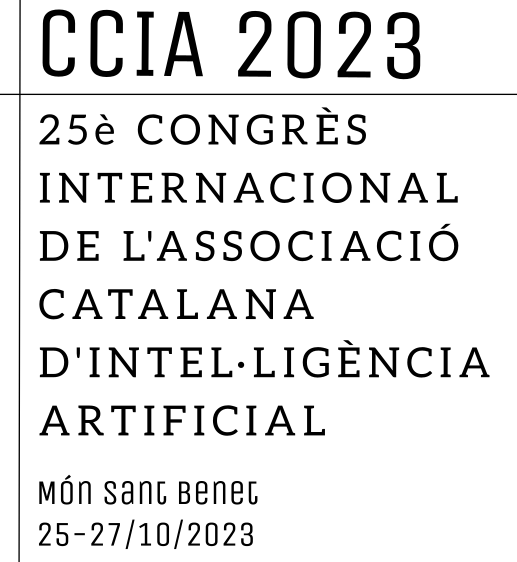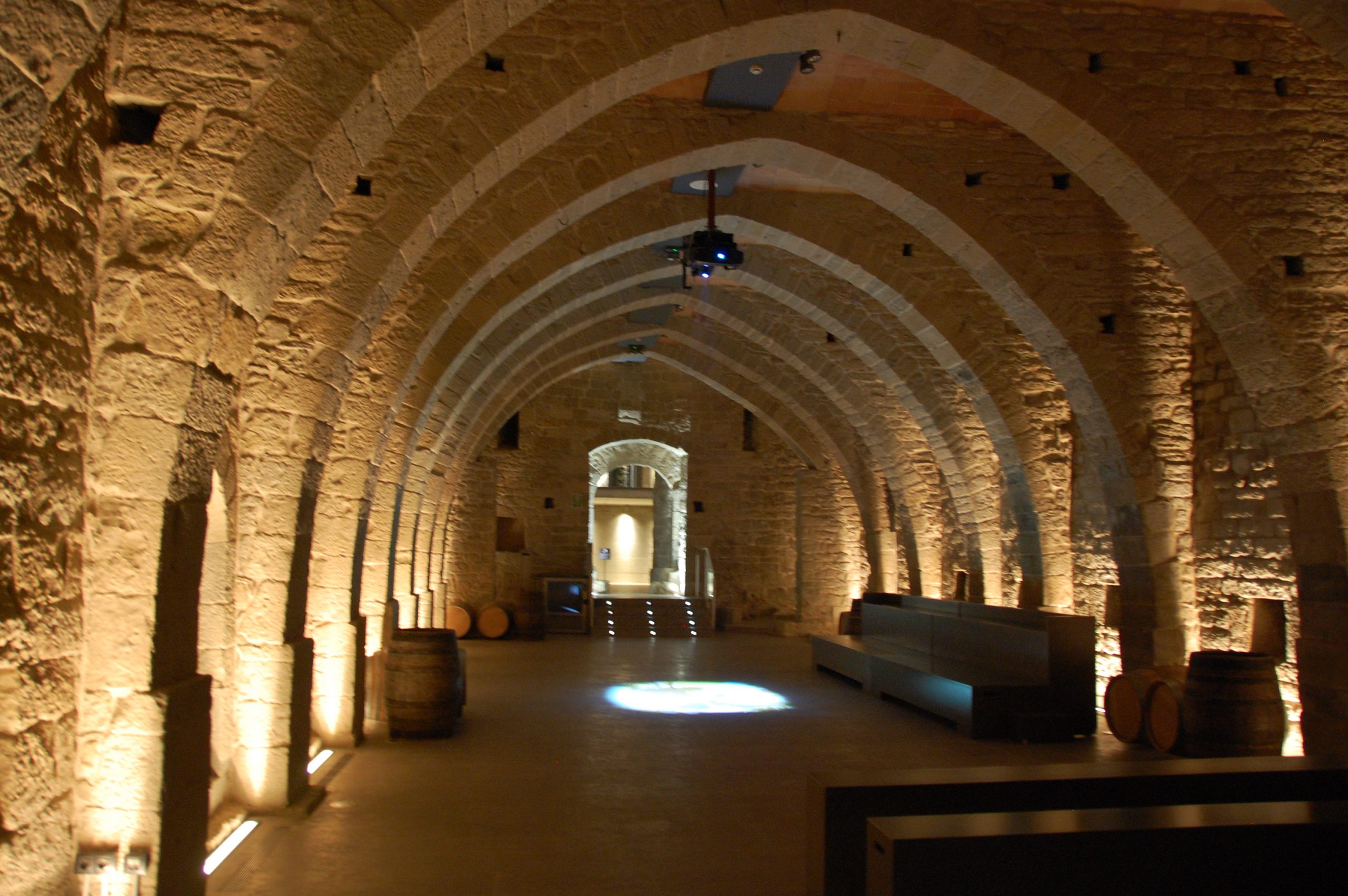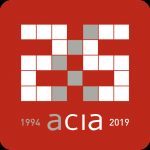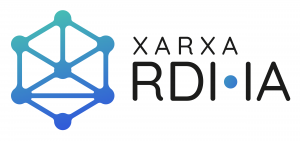
We invite you to participate in the 25th International Conference of the Catalan Association for Artificial Intelligence (CCIA 2023) that will take place on 25-27th October 2023 at Món Sant Benet.
This year’s international conference theme is Supportive AI, where the main goal is to strengthen collaboration between research and industry by sharing the latest advances in Artificial Intelligence and to open discussions on what are the current needs in industry and how AI can better support those needs.
Latest News
Open-Access proceedings are now online here.
Information on Special Issues is now available in the Publication section
REGISTRATION AND ACCOMODATION
The registration for the conference is now open.
Registered participants have special rates at the Món Sant Benet Hotel. The reservation system has blocked the rooms for the CCIA attendants.
Use the promotional code Esade23 to unlock the dates and get a preferential rate. This code is only valid until September 11.

LOCATION
The conference will take place at Hotel Món Sant Benet & Conference Centre,
part of Món Sant Benet, in a beautiful natural area
that includes the medieval monastery of Sant Benet del Bages.
IMPORTANT DATES
May 15, 2023
Short paragraph abstract deadline (extended)
May 15, 2023
Full article, short article
and abstract submission deadline (extended)
JULY 7, 2023
Author notification (updated)
July 31, 2023
Camera-ready deadline (updated)
September 10, 2023
Early registration deadline (updated)
October 25-27, 2023
Conference
Schedule
| 15:00-15:30 | Registration |
| 15:30-16:00 | Opening |
| 16:00-17:00 | Full paper session 1: Machine learning: theory and applications (1) Chair: Cecilio Angulo 16:00 – 16:15 E. Ferrer, J. Escrig, J. Ruiz-de-Azua and F. Betorz: Inter-Satellite Link Prediction with Supervised Learning based on Kepler and SGP4 orbits 16:15 – 16:30 B. Velasco-Regulez and J. Cerquides: Hydranet: A Neural Network for the Estimation of Multi-valued Treatment Effects 16:30 – 16:45 J. Núñez, A. Tormos, J. Arjona, D. Garcia and J. Bejar. Applying Generative Models and Transfer Learning to Physiological Data Classification 16:45 – 17:00 A.M. Okran, A. Saleh, D. Puig and H. A. Rashwan: Stacking Up for Success: A Cascade Network Model for Efficient Road Crack Segmentation |
| 17:00-17:30 | Coffee Break |
| 17:30 – 18:30 | Full paper session 2: Consensus, social media evaluation Chair: Jordi Levy 17:30 – 17:45 W. Abuasaker, J. Nguyen, M. Sánchez, N. Agell and F. Ruiz: An application to measure consensus on customers’ raitings using unbalanced linguistic terms 17:45 – 18:00 R. Ballester, Y. Labeyrie, J. Cerquides, M. Oguz and J. Fernandez-Marquez: Mathematical and Computational Models for Crowdsourced Geolocation 18:00 – 18:15 V. Casales-Garcia, I. Sanz, Ll. Museros, Z. Falomir and L. Gonzalez-Abril: Sentiment Analysis of Gastronomic Posts from Colour Palettes and Narrative content 18:15 – 18:30 H. B. Firmansyah, C. Bono, V. Lorini, J. Cerquides and J. Fernandez-Marquez: Improving Disaster Response by Combining Automated Text Information Extraction from Images and Text on Social Media |
| 18:30 | Assemblea ACIA |
| 21:00 | Social cocktail |
| 9:00-10:00 | Invited talk 1: Lluis Formiga, Unlocking the Power of LLMs: Navigating Challenges for Industry in the AI Renaissance Chair: Ismael Sanz |
| 10:00 – 11:00 | Short papers session 1: Machine learning: theory and applications (1) Chair: Jordi Nin – Á. Heredia-Lidón, N. Martínez-Abadías and X. Sevillano: Full-range Yaw Prediction: A Multi-view Approach for 3D Head Model Pose Estimation Using Convolutional Neural Networks – J. Malé, Y. Heuzé, J. Fortea, N. Martínez-Abadías and X. Sevillano: A Deep Learning-Based pipeline for computing brain biomarkers from MRI – R. Giacalone, C. Guerrero-Mosquera and X. Sevillano: Identifying patterns between acoustic environment and visual landscape through semantic segmentation based on deep learning – K. Svensson and C. Guerrero: OPNet: A One-Shot Image Similarity Algorithm for Production Systems – E. Alvarez, D. García, J. Vila-Francés and F. Grimaldo: Text characterisation for the fight against political misinformation – S. Sánchez, I. Huerta and J. Escrig: A Real-World Dataset for Benchmarking False Alarm Rate in Keyword Spotting – D. Ben Khalifa and M. Martel, Floating to Fixed-Point Conversion of Deep Neural Networks with Guaranteed Error Bounds Long abstracts (poster only) – V. Vallés and E. Vidaña-VilaEduSign: Real-time Application for Spanish Sign Language Recognition |
| 11:00-11:30 | Coffee Break |
| 11:30-13:00 | Full paper session 3: AI for health: theory and applications Chair: Mateu Vilaret 11:30 – 11:45 D. Gómez, M. Diaz, J. Arcos and J. Cerquides. Bayesian optimization with additive kernels for the calibration of simulation models to perform cost-effectiveness analysis 11:45 – 12:00 L. Urcelay, D. Hinjos, P. Martin, M. González, M. Méndez, S. Cívico, S. Álvarez-Napagao and D. García-Gasulla: Exploring the Role of Explainability in AI-Assisted Embryo Selection 12:00 – 12:15 E. Martinez-Heras, A. Vicente-Gomez, F. Vivó, M. Diaz-Hurtado, B. Kanber, J. Casas-Roma, S. Llufriu and F. Prados: Longitudinal Segmentation of Multiple Sclerosis Lesions using nnU-Net architecture 12:15 – 12:30 B. Salbanya, I. Unceta and J. Nin: Resource Allocation in Home Care Services Using Reinforcement Learning 12:30 – 12:45 S. Bech, B. Lobato, O. Pujol, J.M. Soria and A. Muñoz: Assessing VTE Risk in Cancer Patients using Deep Learning Synthetic Data Generation and Domain Adaptation Techniques 12:45 – 13:00 G. Hernández, B. López, F. López and O. Estrada: Hipertension visits demand forecasting using cross-correlation and lagged multiple linear regression models. A case study for anticipating health resources needs |
| 13:00-13:30 | DonesIAcat presentation. Karina Gibert UNICEF presentation. Iván Dotú, AI for Universal Connectivity at Giga (A Unicef and ITU partnership) |
| 13:30-15:00 | Lunch |
| 15:00-16:00 | Full papers session 4: Machine learning: theory and applications (2) Chair: Jesus Cerquides 15:00 – 15:15 C. Serrano and D. Miralles: Internal representation and Shepard’s law in an artificial haptic system. 15:15 – 15:30 B. Komander, J. Cerquides, J. Chan, A. Alavi and J. Piera: Expert Finding For Citizen Science Discourse Platforms 15:30 – 15:45 A. Karna and K. Gibert: Clustering of qualitative time series for 3d printing quality management 15:45 – 16:00 F. Grimaldo, D. Garcia-Costa and L. Marco-Tordera: Cognitive similarity through bibliometric analysis. |
| 16:00-17:00 | Short papers session 2: Machine learning: theory and applications (2) Chair: Jordi Casas – J. García-Sánchez, X. Vilasís-Cardona, Á. García-Piquer and A. Lerma-Martín: Analyzing Car Configurator Impact through Genetic Algorithm from a Regional Perspective – F. Villamarin and C. Guerrero: Navigating black swan events in algorithmic trading: a reinforcement learning perspective – S. Bernet, M. Calvo, Á. Garcia, E. Golobardes, N. Valls and X. Vilasis-Cardona: Machine Learning in Particle Physics Experiments: the case of LHCb – C. García, M. Velasco, C. Angulo, P. Marti and A. Camacho: Petri Net-Based Controllers Generation using Genetic Programming – M. Carós, A. Just, S. Seguí and J. Vitrià: Addressing Scale and Density Challenges in LiDAR Point Classification – D. Martínez-Galicia, A. Guerra-Hernández, X. Limón, N. Cruz-Ramírez and F. Grimaldo: A Bayesian Network Framework to Study Class Noise: Exploring the Filtering of Completely Random Noise Long abstracts (poster only) – V. Caselles, W. Piedra, J. Casas, X. Paolo and F. Prados: Development of an automated CBCT scan nerve and teeth segmentation tool based on Deep Learning – E. Ortega, I. Benito-Altamarino and C. Ventura: Zero-shot prediction for emotion recognition using deep spectrum features – P. Gilabert, C. Malagelada, H. Wenzek, J. Vitrià and S. Seguí: Automated Cleanliness Scoring and Digestive Content Segmentation for Capsule Endoscopy |
| 17:00-17:30 | Coffee Break |
| 17:30-18:30 | Full papers session 5: Boolean satisfiability problems Chair: Francisco Grimaldo 17:30 – 17:45 M. Cané, J. Coll, M. Rojo and M. Villaret: SAT-IT: the Interactive SAT Tracer 17:45 – 18:00 E. Calò and J. Levy: General Boolean Formula Minimization with QBF Solvers 18:00 – 18:15 J. Coll, Chu-Min Li, F. Manyà and E. Yangin: A Complete Tableau Calculus for the Regular MaxSAT Problem 18:15 – 18:30 C. Ansótegui, M. Bonet and J. Levy: On the Density of States of Boolean Formulas |
| 18:30-19:30 | Social Event Cultural visit: Mediaeval and Modernist Experience Groups in Catalan and English language |
| 21:00 | Gala Dinner |
| 9:00-10:00 | Invited talk 2: Aida Kamišalić, Formalization of drug dose titration procedures In remembrance of David Riaño Chair: Aïda Valls |
| 10:00-11:00 | Short papers session 3: AI for good, ethics, society, serious games Chair: Irene Unceta – P. Garcia-Calvés, J. Sabater-Mir, P. Aramendia, J. Corominas and B. Perez: Recommenders for improved lesson planning in formal education – K. Zacharaki, J. Nguyen, Q. Prat-i-Pubill and N. Agell: Capturing people’s interest in food waste reduction: an approach using qualitative reasoning – M. Ribalta, J. Pueyo-Ros, L. Corominas, R. Béjar, C. Mateu and E. Rubión: Explainable Machine Learning Models for Predicting COVID-19 Cases in Catalonia based on Wastewater Monitoring Data – S. Guillén, J. Bandera, A. Hidalgo-Paniagua and A. Bandera: Exploring Learning Techniques for Developing Socially-aware Service Robots: Best Practices for Social Comfort – S. Paul, J. Salas and V. Torra: Privacy-Preserving Dynamic Graphs: edge local differential privacy N. Valls, M. Calvo, E. Golobardes and X. Vilasis-Cardona: Reconstruction of the LHCb Calorimeter using Machine Learning: lessons learned Long abstracts (poster only) – D. Bonet-Solà, E. Vidaña-Vila and R. Alsina-Pagès: Predicting the Perceptual Rating of a Soundscape Using Artificial Intelligence – J. Pascual, A. Valls, A. Moreno and P. Romero: Challenges in the exploitation of historical clinical data for the classification of diabetic retinopathy patients |
| 11:00-11:30 | Coffee Break |
| 11:30-12:30 | Full papers session 6: AI for good, ethics, society, serious games Chair: Queralt Prat 11:30 – 11:45 X. Angerri and K. Gibert: A General model for the metainformation of complex questionnaires for automatic preprocessing and reporting under INSESS methodology 11:45 – 12:00 P. Subías-Beltrán, O. Pujol, I. de Lecuona and V. Ribas: Respect for Autonomy in the Machine Learning Pipeline 12:00 – 12:15 B. López, R. Campdepadros and A. Sabater: Sequence pattern mining for citizens behaviour learning in fair-purpose social games. Some preliminary results 12:15 – 12:30 V. Santamarta, P. Garcia-Segarra, N. Ventura-Ramos, A. Moreno-Rus and Z. Falomir: Reversal error in mathematics: training against it using ε coach |
| 12:30-13:30 | Awards |
| 13:30-15:00 | Lunch |
TOPICS
- AI Applications
- AI Problem Solving
- Agents and Multi-agent Systems / Hybrid systems
- Artificial Neural Networks and Evolutionary Systems
- Artificial Vision and Image Processing / Perception
- Cognitive Modelling and Cognitive Systems
- Data Mining and Knowledge Discovery from Databases
- Ethical, Legal, Social, Economic and Cultural aspects of AI (ELSEC-AI)
- Explainable and Interpretable AI
- Fusion / Aggregation of Information
- Human-Machine Communication
- Human-Robot Interaction
- Knowledge Representation and Ontologies
- Logic, Reasoning and Fuzzy Logic
- Machine Learning and Case-based Reasoning
- Natural Language Processing
- Planning, Optimization, Satisfiability and Constraints
- Real Time AI
- Recommender Systems, Text Mining, and Semantic Web
- Robotics
- Virtual Agents
PAPER SUBMISSION
We invite you to submit papers reflecting both finished works as well as works in progress, containing original and promising ideas. We welcome the following types of submissions:
- Abstract (1-2 pages)
- Short papers (2-4 pages)
- Long papers (8-10 pages)
Long submitted papers will be peer-reviewed based on technical quality, relation to the topics of the conference, originality, relevance, significance, and clarity. Short papers will be evaluated for their significance considering them as ongoing work descriptions. Abstracts should reflect initial positioning and/or breaking ideas that provoke discussion. Note that all submissions must be original. Short and abstract accepted papers will be presented in lightning and poster sessions
Paper submissions must meet the following guidelines:
- Papers must be written in English language to be published in the proceedings.
- Papers must be submitted in PDF format following the IOSPress guidelines. Detailed instructions, templates and style sheets for manuscript preparation are available to download here: https://www.iospress.nl/service/authors/latex-and-word-tools-for-book-authors/
- Papers should not include page numbers.
- All papers must have an Abstract and a list of keywords.
Papers should be submitted through the EasyChair platform at https://easychair.org/conferences/?conf=ccia2023
.
PUBLICATION AND SPECIAL ISSUES
Accepted long and short papers are published at the conference proceedings book in the collection “Frontiers in Artificial Intelligence and Applications” of IOS Press.
The open-access proceedings are now available here.
We invite the authors of the best conference papers to submit extended versions of their work to the following Special Issues of indexed journals:
- The International Journal of Computational Intelligence Systems (Springer) is now welcoming submissions for a special issue titled “Advancing the Common Good: Special Issue on Applied AI Solutions.” This journal has a 2-year impact factor of 2.9.
- The Cognitive Systems Research journal (Elsevier) invites submissions for a special issue named “AI Cognitive Systems Applied to Social Scientific Research.” This journal has a 2-year impact factor of 3.9


sTUDENT GRANTS
After receiving the notification of acceptance, ACIA member students who will attend the conference can apply for grants funded by Associació Catalana d’Intel·ligència Artificial.
Deadline: July 18
ORGANIZATION
- General Chair: Ismael Sanz (Universitat Jaume I)
- Local Organization Chair: Jordi Nin (ESADE)
- Scientific Programme Chair: Raquel Ros (PAL Robotics)

